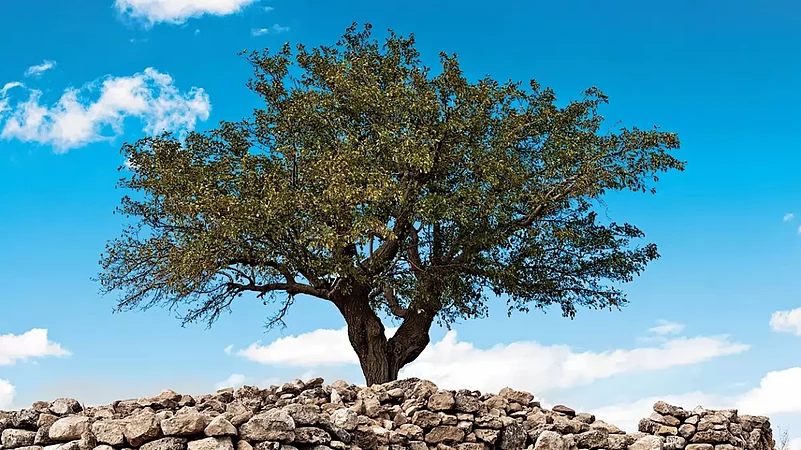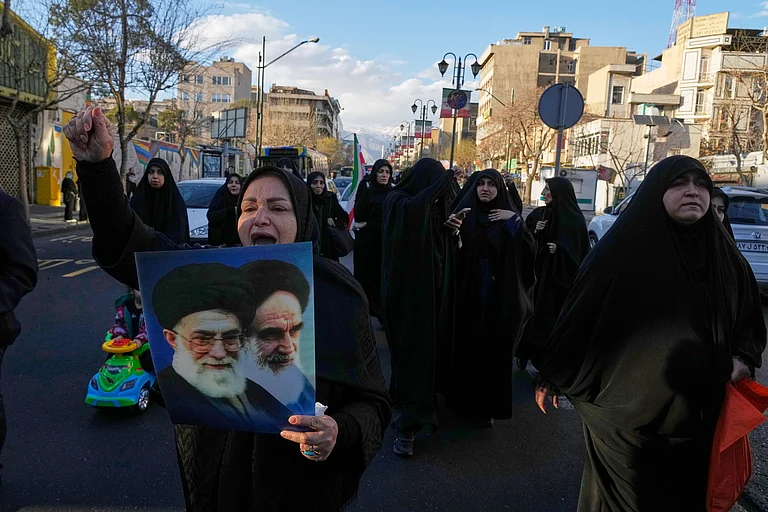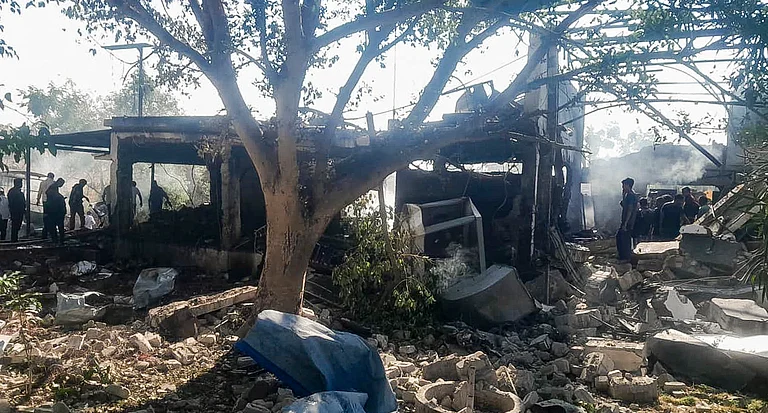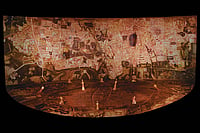Sabeer Haka, Iran’s worker-poet, constructs buildings by mixing brick, mortar and cement. He creates poems by mixing words, thoughts and images. We haven’t seen the buildings he helped construct, but we can feel the sweat of his body and the sound of his creaking bones in the poems he writes. I have translated countless poems in my life so far, and amongst them, the poems of Haka hold a special place.
I translate mostly for creative satisfaction. While reading world literature in English, if I spot a poem that I feel should be available to the Hindi reader, I try to get in touch with the poet or their representative for the permission. I then translate the poem into Hindi so that the vast reader-family of my language can read the poem. The poems of the Iranian poet Haka are among the translations that have given me two kinds of joy. One is the satisfaction that the beautiful poems of an Iranian poet donning a different attitude have come into my language and enriched it. And the other is the pleasure of watching the poems receive immense love from Hindi readers through social media.
The story of my getting acquainted with Haka’s poems is short but interesting. There is a famous magazine of world poetry from London called ‘Modern Poetry in Translation’, and I am its old reader and contributor. In 2015, the magazine brought out an issue focussed on Iranian poetry in which, for the first time, I came across the poetry of Haka. I was immediately drawn to the poems because they were written by a construction worker, and because they spoke of the painful experiences not commonly seen in the works of poets living a middle-class life. As soon as I read them, I knew I had to present them to my Hindi readers. I burned with a desire to translate them.

Immediately, I wrote to Sasha Dugdale, the then editor of ‘Modern Poetry in Translation’, a British poet and friend, and she connected me to Haka’s English translators, Nasrin Parvaz and Hubert Moore. They not only gladly gave me permission to translate from their English text, but also connected me to Haka. Before the year 2015 ended, the literary magazine ‘Sadaneera’, edited by a senior poet Agneya, had published the Hindi translations.
The power of Haka’s poems became strikingly evident when a few days after publication, I shared them on the internet and social media. The rest is history. The generous, kind, large-hearted Hindi readers welcomed the poems with both hands—thousands shared the poems, hundreds recorded them in their voices and posted. Suddenly, Haka became Hindi poetry’s new sensation! These activities haven’t still cooled off. Still, every year on Labour Day, Haka’s poems are shared the maximum number of times in Hindi. His poems have become a symbol of the pain and resistance of workers.
Subsequently, the Hindi poems were used to translate the stirring Haka poems into Marathi, Punjabi, Bengali, Gujarati, Kannada and many other Indian languages.
It is interesting to note that the poet wrote the poems in the original Persian; they were published in London in English translation; from the English, they were translated into Hindi, from the Hindi into other Indian languages. If we look at this translation process, it is as amazing as it is risky. My surprise reached its end point when a translator made a new English translation of Haka’s poems based on the Hindi text! All these acts are enough to make us aware of how powerful the poetry of Haka is and how people find their truth connected with the truth that permeates his poems!

Here it is necessary to mention that the translation work is not given due importance in the Hindi language. Translation becomes possible only because of the personal efforts of some specific readers. For this reason, the tradition of translating into Hindi from the English translation of non-English works is often debated. If ‘translation only from the original language’ is a prerequisite, then readers will have to wait for years for the translation of many works. The urgency of the content in Haka’s poetry takes it beyond the limits of language.
Haka was born in 1986 in Kermanshah. He lives in Tehran and has published two poetry collections, with a third forthcoming. He won first prize in the Iranian Workers’ Poetry Competition. Even as a child worker, Haka desired to read and write. He says in an interview, “I am tired. Very tired. My tiredness goes back to before my birth. My mother carried me in her womb while working, and I have been a worker ever since. I can feel my mother’s exhaustion; her tiredness still beats inside my body.”
Haka says there were times when he had no place to sleep in Tehran and spent the nights wandering the streets. For almost two decades, he has been trying to work on his novel, but amid his struggles, he hasn’t been able to. His poverty, the constant ups and downs and the instabilities in his life because of the hellish political situation in Iran are perhaps the reasons he could never find comfort or peace to write. There is a heart-wrenching poem by Sabeer Haka, ‘Mulberries’, in which he says:
Have you ever seen
mulberries,
how their red juice
stains the earth where they fell?
Nothing is as painful as falling.
I’ve seen so many workers fall from buildings
and become mulberries.
A fruit like mulberry falling from a tree is too trivial an incident and the death of a worker falling from a building is too trivial for some people—this realisation in itself brings a cruel reality before our eyes.
In another poem, he expresses his wish that when he dies, he’ll fill his grave with all his favourite books and sleep. Even then one morning, someone will shake his shoulder and say, ‘Get up, Sabeer, we have to go to work.’ In Haka, there is a playfulness towards grave, life, death and the like. In a poem he says:
All my life I have accepted
death is part of life.
In spite of this I still fear death
fear to be a worker in the next world too.
In Iran, there is the tragic tale of literary censorship. The government gets the words deleted from the works of poets and writers. Many times, the sentences become incomplete, confusing and unintelligible. Iranian writer Shahriar Mandanipour had in 2009 written a satirical novel ‘Censoring an Iranian Love Story’. The writer took those lines censored by the government and put them playfully as crossed-out text in his work. The pages became expressions of a hypocritical two-faced Iran’s socio-political reality. Even Haka’s poems were not untouched by this censorship. In his English and Hindi translations, words have been parenthesised to indicate they were censored and replaced with ‘dot dot dot’ in the original Persian poems. He says in a poem:
(God) is a worker too.
Welder of welders he must be.
In the evening light his eyes are red;
at night his shirt is full of holes.
In the original Persian poem, the word ‘God’ was censored.
Haka raises his voice in defence of the writers within his poetry and also outside of it. His English translator Nasrin Parvaz is a voice of resistance herself. Born in Tehran, Nasrin fought for women’s rights from a young age. This infuriated the government. She was tried in court and given a death sentence. The move sparked widespread protests. The sentence was converted to ten years imprisonment.
In 1990, when she was released from prison, sensing that her life was in danger, she settled in London. She is now working zealously on Iranian issues, and one of them which is close to her heart is to bring progressive Persian poetry into English. She once told me that Haka’s poetry is so deeply rooted in the traditions of Iran that she finds it difficult to translate them into English with the same richness in style and outcome. I agree with her. Haka is not a poet of his candid accounts of personal sorrows but a modern chapter of Iran’s ancient poetic tradition, who takes every possible artistic and creative risk to express his personal, social and political reality. If truth be told, translating such a poet is, for me, expanding my own resistance-filled creative consciousness.
(Translated by Anita Gopalan, who is the recipient of a PEN/Heim Translation Fund Grants)
(This appeared in the print as "The Power Of Poetry")
Geet Chaturvedi is a Hindi poet, novelist and essayist. He won the 2021 Vatayan-UK Literary Award for his contribution to Hindi literature























